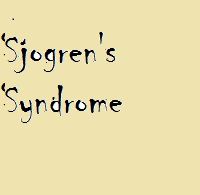Anti-B Cell Therapy Helps Little with Some Sjogren's Syndrome Symptoms
A research team in the UK looked at how well rituximab (Rituxan/Genentech) improved the Sjogren's Syndrome symptoms of fatigue and dry mouth.

Anti-B-cell therapy has been shown to help patients with primary Sjogren's Syndrome (PSS.) A research team in the UK looked at how well rituximab (Rituxan/Genentech) improved the condition's symptoms of fatigue and dry mouth.
Reporting at the American College of Rheumatology Annual Meeting in San Francisco, CA, Simon Bowman o university Hospital Birmingham, Birmingham, UK and colleagues recruited subjects from 25 rheumatology clinics in the UK.
All received pre- and post-infusion corticosteroids and either placebo of rituximab.The primary endpoint of the study was the proportion of patients achieving 30% reduction in either fatigue or oral dryness at 48 weeks.
The also looked at fatigue and oral dryness separately, global assessment of PSS activity, pain, ocular and overall dryness, flow of saliva and tears, and quality of life.
There were 133 patients, with a mean age of 54, nearly all of them women.
Only 24 of 61 patients getting the drug regimen achieved the endpoint, barely more than the 21 of 56 patients who achieved the endpoint while getting a placebo.
The only outcome on which patients getting the drug scored higher was salivary flow. There were more adverse events re ported in total for the drug group, but none were serious.
The group concluded that the trial, while the largest randomized trial of a biologic therapy in PSS, was disappointing in its results. "No improvement in symptoms was seen in the rituximab arm, but [there was] modest benefit for rituximab in salivary flow.
The researchers will report their results on Nov. 10 at the meeting.